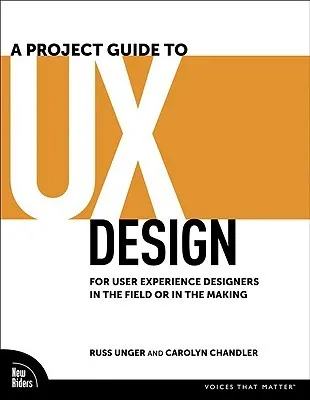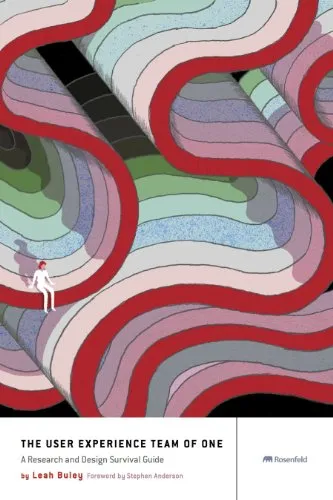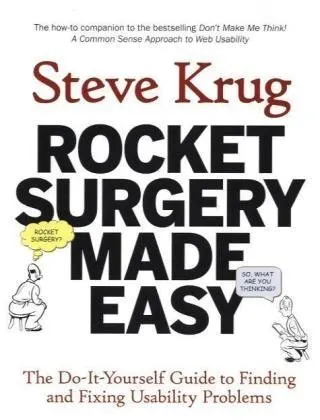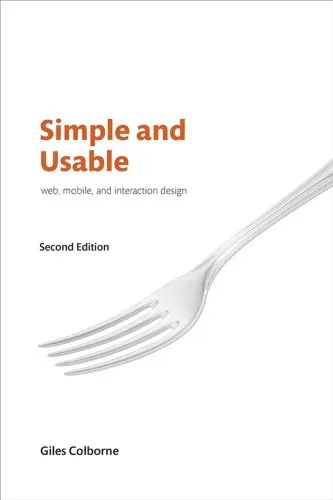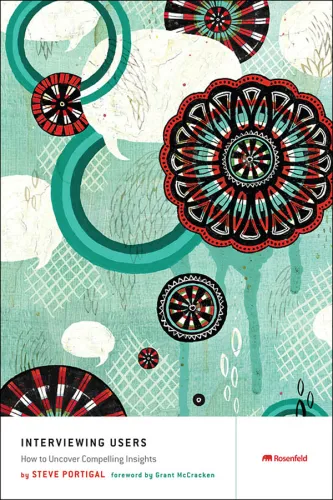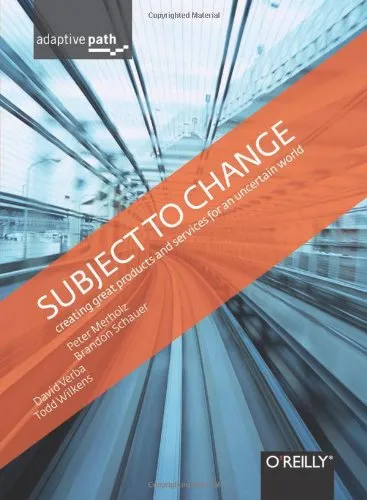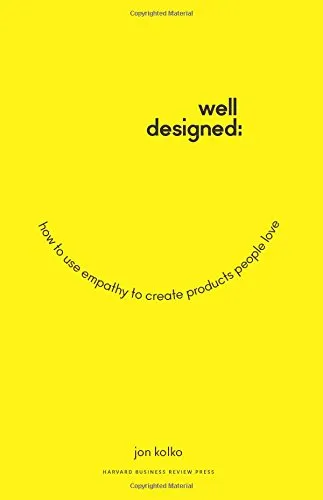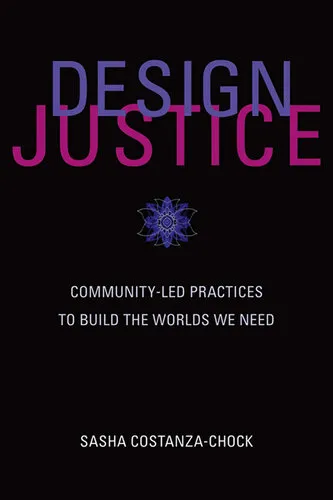Design as Democracy: Techniques for Collective Creativity
4.5
بر اساس نظر کاربران

شما میتونید سوالاتتون در باره کتاب رو از هوش مصنوعیش بعد از ورود بپرسید
هر دانلود یا پرسش از هوش مصنوعی 2 امتیاز لازم دارد، برای بدست آوردن امتیاز رایگان، به صفحه ی راهنمای امتیازات سر بزنید و یک سری کار ارزشمند انجام بدینکتاب های مرتبط:
مقدمهای بر کتاب «Design as Democracy: Techniques for Collective Creativity»
کتاب «Design as Democracy: Techniques for Collective Creativity» اثری برجسته است که به طراحی و فرآیندهای خلاقانه در فضای جمعی میپردازد. نویسندگان این کتاب تلاش کردهاند تا مفاهیمی را ارائه دهند که امکان خلق جمعی را برای طراحان، مهندسان و جوامع فراهم کنند. در این اثر، طراحی به چشم ابزاری برای تحقق عدالت اجتماعی و تقویت مشارکت جمعی نگاه میشود. این کتاب پر از تکنیکها، روشها و ابزارهای کاربردی است که به افراد کمک میکند تا فرآیندهای طراحی را دموکراتیکتر کنند.
خلاصهای از کتاب
کتاب «Design as Democracy» مجموعهای است از تکنیکها و روشهایی که به طراحان، افراد حرفهای و حتی مردم عادی کمک میکند تا بتوانند از طراحی به عنوان ابزاری برای خلق یک جامعه بهتر استفاده کنند. این کتاب شامل دیدگاههایی از چندین نویسنده و متخصص در حوزههای مختلف طراحی، برنامهریزی شهری و توسعه جوامع است. نویسندگان بر این باورند که فرآیند طراحی نه تنها باید خلاقانه باشد، بلکه دموکراتیک و مشارکتی نیز باشد تا تمام افراد بتوانند در خلق و شکلدهی به آینده خود سهیم باشند.
در این کتاب، شیوههای متعددی برای استفاده از ابزارهای طراحی در مشارکت اجتماعی معرفی شده است. این تکنیکها با هدف درگیر کردن صداهای مختلف در فرآیند تصمیمگیری طراحی شدهاند تا جوامع بتوانند با همکاری یکدیگر، فضای زندگی خود را بهبود بخشند. همچنین، نویسندگان ارتباط میان طراحی خلاقانه و عدالت اجتماعی را بررسی کرده و نشان میدهند که چگونه از طراحی میتوان برای ایجاد تغییرات پایدار در جوامع استفاده کرد.
نکات کلیدی کتاب
- طراحی دموکراتیک به معنای گوش دادن به همه صداها و استفاده از خلاقیت جمعی است.
- این کتاب ابزار و تکنیکهای مشخصی برای ارتقای مشارکت اجتماعی در فرآیند طراحی ارائه میدهد.
- ارتباط بین طراحی و عدالت اجتماعی بهوضوح در این کتاب ترسیم شده است.
- نیاز به شیوههای خلاقانه برای مواجهه با چالشهای دنیای مدرن در این کتاب برجسته شده است.
- کتاب نشان میدهد که طراحی میتواند بهعنوان ابزاری برای تغییرات سیستماتیک و پایدار استفاده شود.
جملههای معروف از کتاب
«دموکراسی در طراحی به معنای باز کردن مسیرهایی برای گشودن خلاقیت جمعی است، جایی که همه افراد میتوانند بخشی از فرآیند باشند.»
«طراحی باید بهگونهای انجام شود که عدالت اجتماعی و جمعسپاری در مرکز آن قرار گیرد.»
«هنر طراحی این است که میان فردیت و نیازهای جمعی تعادل ایجاد کند.»
چرا این کتاب مهم است؟
«Design as Democracy» کتابی است که مفهوم طراحی را به سطح جدیدی از درک و ارزش میبرد. در جهانی که نیاز به مشارکت و همکاری جمعی بیش از هر زمان دیگری احساس میشود، این کتاب ابزارهای ارزشمندی برای مهندسان، طراحان، برنامهریزان شهری و حتی افراد معمولی که علاقهمند به بهبود جوامع خود هستند ارائه میدهد. اهمیت این کتاب تنها در تکنیکها و روشهای آن نیست، بلکه در فلسفه عمیقی است که پشت این ایدهها قرار دارد. طراحی بهعنوان یک عمل دموکراتیک، میتواند تغییرات بزرگی در سطح فردی و اجتماعی به همراه داشته باشد و این کتاب راهنمایی ارزشمند برای تحقق این هدف است.
این اثر نهتنها الهامبخش است، بلکه بهصورت عملی و کاربردی نیز تدوین شده است. تمرکز بر عدالت اجتماعی، تأکید بر شمولیت (inclusion) و استفاده از ابزارهای خلاقانه باعث شده تا این کتاب به یکی از منابع کلیدی برای اشخاصی که به دنبال تأثیر مثبت در جوامع خود هستند تبدیل شود.
Introduction to "Design as Democracy: Techniques for Collective Creativity"
"Design as Democracy: Techniques for Collective Creativity," edited by David de la Pena and collaborators, is a ground-breaking guide that reimagines design as a participatory and inclusive process. Through this carefully curated collection, the authors explore how design can be harnessed to empower communities, foster collaboration, and address complex societal challenges. The book brings to light the critical role of democratic design techniques in tackling the social and environmental crises of our time.
Modern design often caters to exclusivity, serving the interests of a select few. However, this book challenges that notion, offering designers, urban planners, architects, and activists hands-on techniques to co-create with communities. Structured as a resource toolkit, "Design as Democracy" emphasizes process over product, advocacy over apathy, and inclusivity over exclusion. Each chapter is a wellspring of tools, stories, and wisdom for achieving collective creativity through collaborative processes. It is about more than just aesthetics—it's about justice, equity, and sustainability in collaborative design practices.
This introduction sets the stage for unpacking the detailed summary, key insights, memorable quotes, and significance of the book in today’s world.
Detailed Summary of the Book
At its core, "Design as Democracy" invites readers to reconsider the social role of design and the power it holds to influence societal systems and build equitable futures.
Each chapter of the book introduces a particular design method or technique that is rooted in collaboration. The contributors include experts from fields like landscape architecture, community advocacy, and social design. They present real-world case studies that demonstrate how these methods have transformed communities. From participatory mapping to storytelling circles, the book details how these techniques build trust, empower participants, and uncover innovative solutions to local challenges.
The book argues for the democratization of the design process—seeing it as an inclusive endeavor rather than one dominated by professionals or institutions alone. It values lived experience as much as professional expertise. Each page provides practical tools for designers to engage with communities more authentically and ethically. The emphasis on achieving collective creativity makes the book applicable for anyone striving to create shared solutions in urban design, education, activism, and beyond.
Key Takeaways
- Design is a social process: Incorporate diverse voices and perspectives in your decision-making to ensure inclusion and equity.
- Tools for democratization: Use techniques such as co-creation workshops, participatory mapping, and storytelling to integrate collaboration into every step of the process.
- Value local knowledge: The lived experiences of community members are invaluable assets in constructing impactful designs.
- Process over product: The journey of design, filled with dialogue, iteration, and collaboration, matters as much as the end result.
- Systemic impact: When done democratically, design can influence broader societal systems and contribute toward justice and sustainability.
Famous Quotes from the Book
- "Design is not just about creating something beautiful; it's about creating something meaningful with others."
- "Every voice, no matter how small, carries within it a truth that can shape a better design."
- "In a truly democratic design process, expertise is shared, not imposed."
- "The value of a design lies not only in what it achieves, but in how it empowers communities to shape their own futures."
Why This Book Matters
"Design as Democracy" is more than a book—it is a manifesto for a better future.
In an era of growing inequality and ecological crisis, the role of design has become increasingly critical. Whether you are a professional designer or a community advocate, this book offers you the tools to address systemic injustice and environmental challenges through your work. By focusing on participatory processes, it bridges the gap between technical expertise and the lived realities of people. With its blend of practical techniques and theoretical insight, "Design as Democracy" equips readers to create meaningful change in their communities and beyond.
Moreover, this book matters because it redefines the relationship between design and power. It democratizes design, moving it away from being an exclusive field reserved for experts. It advocates for a world where everyone, regardless of background or expertise, can shape the systems that influence their lives.
In a world hungry for sustainable solutions, "Design as Democracy" offers a path forward, making it an essential read for anyone interested in transformative, inclusive approaches to problem-solving.
دانلود رایگان مستقیم
شما میتونید سوالاتتون در باره کتاب رو از هوش مصنوعیش بعد از ورود بپرسید
دسترسی به کتابها از طریق پلتفرمهای قانونی و کتابخانههای عمومی نه تنها از حقوق نویسندگان و ناشران حمایت میکند، بلکه به پایداری فرهنگ کتابخوانی نیز کمک میرساند. پیش از دانلود، لحظهای به بررسی این گزینهها فکر کنید.
این کتاب رو در پلتفرم های دیگه ببینید
WorldCat به شما کمک میکنه تا کتاب ها رو در کتابخانه های سراسر دنیا پیدا کنید
امتیازها، نظرات تخصصی و صحبت ها درباره کتاب را در Goodreads ببینید
کتابهای کمیاب یا دست دوم را در AbeBooks پیدا کنید و بخرید
1568
بازدید4.5
امتیاز0
نظر98%
رضایتنظرات:
4.5
بر اساس 0 نظر کاربران
Questions & Answers
Ask questions about this book or help others by answering
No questions yet. Be the first to ask!


![Unleashing the Power of UX Analytics: Proven techniques and strategies for uncovering user insights [Team-IRA] [True PDF]](https://s3.refhub.ir/images/thumb/Unleashing_the_Power_of_UX_Analytics__Proven__9372.webp)
